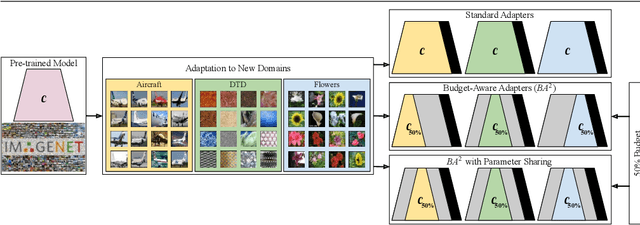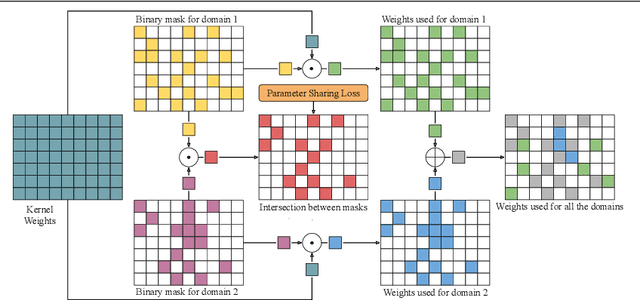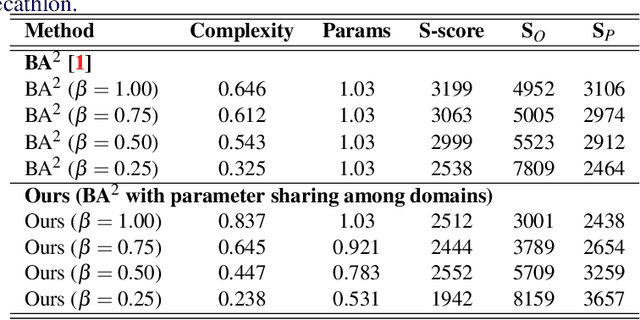Parameter Sharing in Budget-Aware Adapters for Multi-Domain Learning
Paper and Code
Oct 14, 2022



Deep learning has achieved state-of-the-art performance on several computer vision tasks and domains. Nevertheless, it still demands a high computational cost and a significant amount of parameters that need to be learned for each new domain. Such requirements hinder the use in resource-limited environments and demand both software and hardware optimization. Multi-domain learning addresses this problem by adapting to new domains while retaining the knowledge of the original domain. One limitation of most multi-domain learning approaches is that they usually are not designed for taking into account the resources available to the user. Recently, some works that can reduce computational complexity and amount of parameters to fit the user needs have been proposed, but they need the entire original model to handle all the domains together. This work proposes a method capable of adapting to a user-defined budget while encouraging parameter sharing among domains. Hence, filters that are not used by any domain can be pruned from the network at test time. The proposed approach innovates by better adapting to resource-limited devices while being able to handle multiple domains at test time with fewer parameters and lower computational complexity than the baseline model.
 Add to Chrome
Add to Chrome Add to Firefox
Add to Firefox Add to Edge
Add to Edge